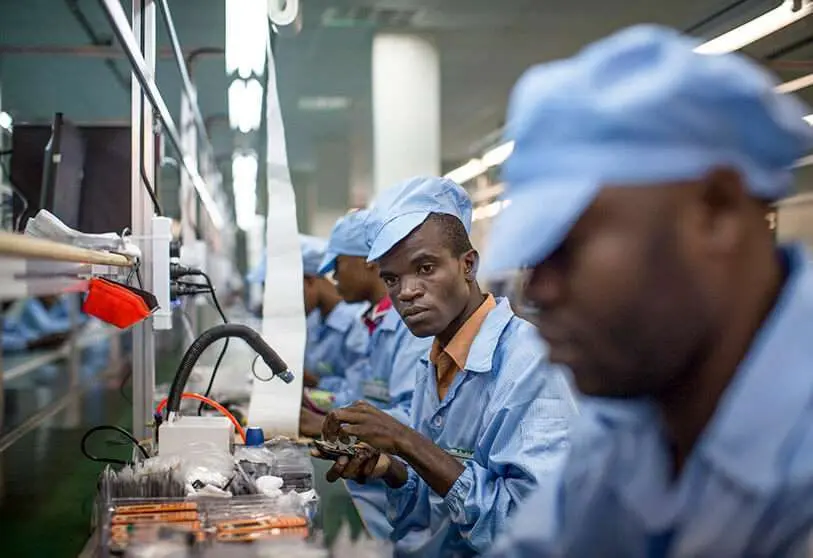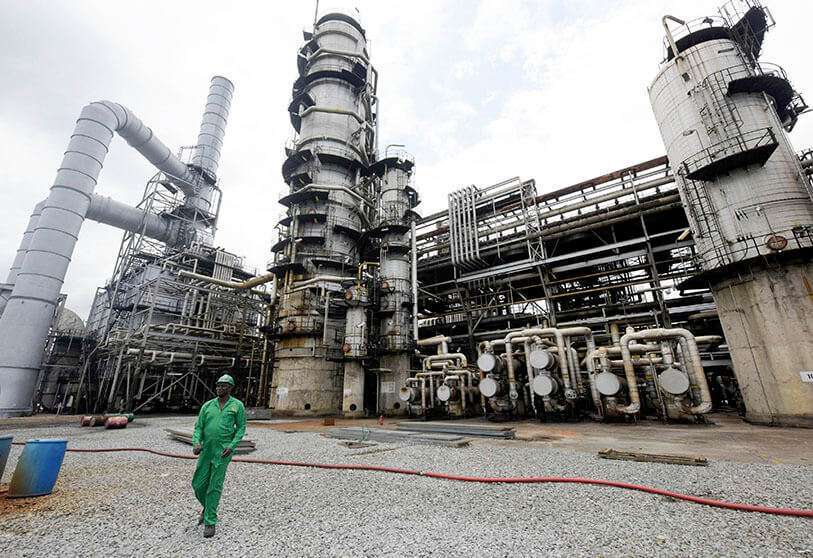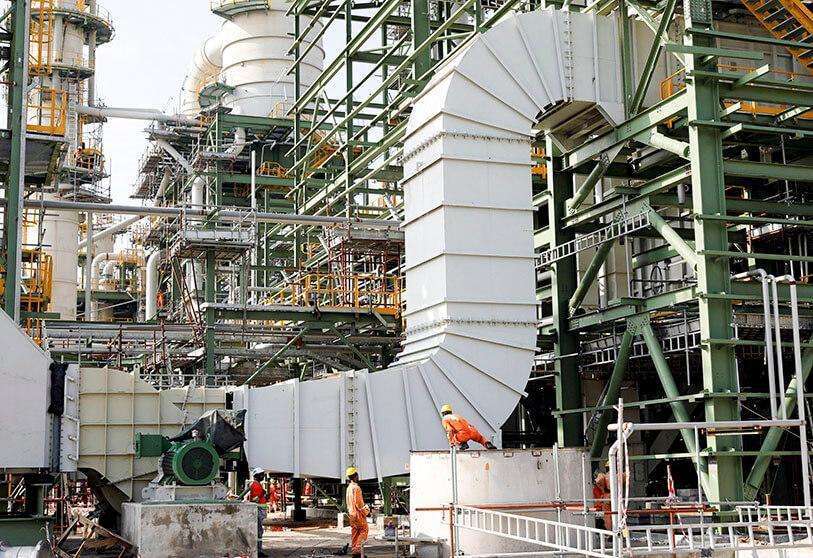The Fourth Industrial Revolution in sub-Saharan Africa: key to coronavirus recovery?

The pandemic has significantly accelerated the global diffusion of technologies associated with the so-called Fourth Industrial Revolution (4IR), including artificial intelligence, the Internet of Things (IoT), big data and blockchain. In sub-Saharan Africa, many now see the 4IR as key to the region's recovery.
Progress towards the 4IR, characterised by the fusion of technologies in the physical, digital and biological spheres, was already underway in sub-Saharan Africa before COVID-19. In Kenya and parts of West Africa, for example, blockchain was used to verify property records, while Ghana-based companies Farmerline and Agrocenta used web and mobile technology to support farmers.
Elsewhere, in 2016, Rwanda became the first country to incorporate drones into its healthcare system, using them to deliver blood to remote regions.
South Africa is another regional leader in this regard. In October 2019, the South African branch of the World Economic Forum's Centre for the 4IR Network was launched, and in January last year, President Cyril Ramaphosa announced the creation of a presidential commission on the 4IR, which will bring together start-ups, researchers and trade unionists, and cybersecurity specialists, among others.
In an article published by the Brookings Institution, a US think tank, at the same time, Ramaphosa argued that Africa needed to take advantage of the 4IR to industrialise, pursue inclusive growth and attract investment.
He also expressed his ambition that, thanks to the 4IR, by 2030 South Africa would be "an economy that uses technological innovation to revolutionise industrial and manufacturing processes, and energy supply and distribution".
"We want to demonstrate how science, technology and innovation have been used to improve our food and water security and to build smart human settlements," he added, highlighting some of the benefits that the 4IR could bring to the continent.

Several factors place the sub-Saharan region in a good position to take advantage of 4IR technologies.
For example, the region has recently experienced a massive expansion in mobile technology, with consumers leapfrogging traditional development channels directly to digital services, particularly with respect to banking.
Africa also has a disproportionately high number of young people, a demographic dividend that is already paying off in terms of 4IR.
More than 400 tech clusters have emerged across the continent, largely through the efforts of young people, with three key hubs - Lagos, Nigeria; Nairobi, Kenya; and Cape Town, South Africa - achieving global recognition.
On top of this, a report published in late 2019 by the African Development Bank (AfDB) noted that IoT had expanded considerably in Africa, while there had been strong growth in investment in technology-driven areas. The report found this unsurprising, given the transformative impacts such technologies can have on sectors as varied as agriculture, manufacturing, healthcare and governance.
But the report also highlighted a number of challenges, including gaps in ICT infrastructure and a decapitalised start-up ecosystem.
Education is also widely identified as a key obstacle, both in the sense that education systems in the region are often inadequate, with limited numbers of people attending higher education, and in the sense that there is a skills mismatch, with many people not adequately trained to take advantage of the 4IR.
While progress has been made, many challenges remain. Published earlier this year, the United Nations Conference on Trade and Development's "Technology and Innovation Report 2021" found that Africa as a whole was the least prepared region in the world to take advantage of 4IR technologies.
South Africa is the most prepared country on the continent, but ranks far behind its BRICS compatriots: Brazil, Russia, India and China. The Democratic Republic of Congo, Gambia and Sudan are among the continent's least prepared countries.

While the onset of the coronavirus pandemic halted progress in many industries in sub-Saharan Africa, it also provided a significant boost to a variety of technologies, as OBG has extensively detailed.
For example, COVID-19 triggered an e-commerce boom in sub-Saharan Africa, and growth in this field is expected to continue into the future: according to a report launched by Google and the International Finance Corporation late last year, Africa's digital economy could contribute 180 billion to the continent's GDP by 2025, up from the 115 billion it is currently responsible for.
Meanwhile, international agencies have been pushing African countries to develop 4IR technologies.
Last June it was announced that the continent was to receive a total of $50 billion in support from the World Bank. The bank encouraged Africa to invest in digital technology by introducing new digital platforms, installing digital infrastructure, developing digital skills and establishing an enabling regulatory environment.

Belief in the importance of the 4IR remains prominent among global organisations.
Cristina Duarte, special adviser for Africa to the UN secretary general, wrote in March this year that, "to address the myriad challenges facing Africa in the areas of food security, education, health and energy, as well as bridging the digital divide, it is critical for African policymakers to harness the innovation and potential offered by digital technologies. This will be crucial for the continent's recovery from the current COVID-19 pandemic.
With the benefits of such developments very clear, the question is: what is being done to ensure that 4IR technologies are used to help sub-Saharan Africa overcome its economic depression in the face of COVID-19?
A number of international agencies are involved. For example, the World Economic Forum's Africa Growth Platform, launched in Cape Town in late 2019, brings together governments, investors and entrepreneurs to create new job opportunities and support Africa's digital transformation.
Development banks are also key players. The AfDB, for example, manages the Coding for Jobs programme as part of its Jobs for Youth in Africa strategy. The programme provides equipment and training to give young people the interpersonal and soft skills needed in many 4IR sectors.
In addition, AfDB investments in agriculture are expected to quadruple to around $2.4 billion by 2024. Much of the funding will go towards transforming food systems, and 4IR technologies will play an important role in this.
Elsewhere, the recently ratified African Continental Free Trade Area agreement is an example of national governments taking proactive steps to accelerate development across the continent.
Indeed, greater collaboration between the public and private sectors, as well as between national and international agencies, will be key to the successful growth and management of the 4IR in the future. In short, if Africa can begin to close its infrastructure and education gaps, it can continue to build on the 4IR, both as an engine of recovery and as a foundation for a successful and inclusive future.










